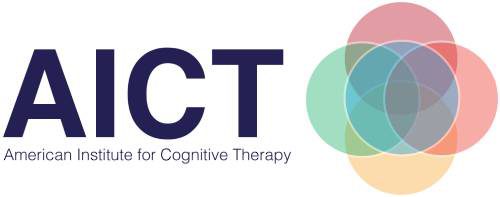Maternal & Paternal Mental Health
Did you know that Perinatal Mood and Anxiety Disorders (PMADs) are the most common medical complications of childbearing? Perinatal Mood and Anxiety Disorder- PMAD- can affect up to 20% of women and up to 10% of fathers from pregnancy through the first year post baby. Postpartum depression, anxiety, OCD, trauma, bipolar or psychosis is temporary and treatable. Unlike baby blues, which impacts up to 80% of postpartum mothers and resolves on its own, these disorders often require medical attention. And although leading maternal health care experts believe mothers (and fathers) should be screened several times from pregnancy through one year postpartum, most are not formally screened at all.
Please contact our support staff to
schedule a consultation at or intake@cognitivetherapynyc.com
schedule a consultation at or intake@cognitivetherapynyc.com
Signs and Symptom of PMADs:
- Depressed mood or severe mood swings
- Excessive crying
- Difficulty bonding with the baby
- Withdrawing from family and friends
- Loss of appetite or eating more than usual
- Inability to sleep (even when baby is sleeping) or sleeping too much
- Overwhelming fatigue or loss of energy
- Reduced interest & pleasure in activities
- Intense irritability, anger & rage
- Feeling sad, hopeless, empty, or overwhelmed
- Apathy
- Suffering from physical aches and pains, including headaches, stomach problems and muscle pains
- Feelings of worthlessness, shame, guilt or inadequacy
- Diminished ability to think clearly, concentrate or make decisions
- Restlessness or an inability to sit still
- Racing thoughts
- Severe anxiety and pain attacks
- Heart palpitations, hyperventilation, shakiness, sweating, nausea or vomiting
- Fear that you’re not a good mother
- Thoughts of harming yourself or your baby
- Recurrent thoughts of death or suicide


Postpartum Depression in Fathers:
Did you know that fathers also experience mental health difficulties related to having a new baby? Less well known, paternal postpartum depression or postpartum for men impacts 8-10% of fathers and causes adverse consequences in their own lives, their relationship with their partner, and it can impact the child’s development and well-being. Risk factors for PPD include a history of depression in either parent, hormonal changes, or financial struggles. Fathers with PPD often experience irritability, restricted emotions, and depressed mood.
How can AICT help?
- Treatment offers a supportive and destigmatizing environment – psychotherapy focuses on how you actually feel rather than how you “should” feel.
- Psychoeducation of PMADS – signs and symptoms of postpartum depression, anxiety, OCD, bipolar, trauma and psychotic disorders.
- Improving self-care – improving sleep, reducing isolation, increasing physical activity, eating a nutritionally rich diet, learning techniques to improve relaxation (deep breathing, PMR) and adaptive coping.’
- Skills, tools & crisis management – utilize distress tolerance strategies and create coping plans
- Cognitive restructuring – Identify unhelpful thoughts, feelings, and behaviors then challenge and reframe these patterns.
- Foster resilience – identify personal strengths, accumulate positive emotions and experiences, build mastery
- Increasing knowledge and use of adaptive coping skills – improving one’s ability to communicate more effectively, utilizing mindfulness techniques (letting go of how things “should be” and accepting reality as it is), identifying and acknowledging conflicting feelings/emotions, urge-surfing, and assertiveness training.
schedule an appointment

